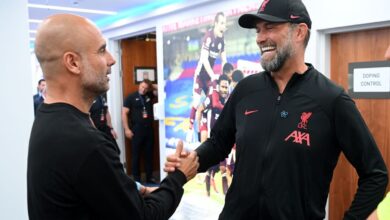What next for European football at Uefa’s moment of truth?

To get a proper sense of just how distorted European football is, you only have to consider the consequences from the final day of last season’s Premier League. It had seemed a straight race between Leicester City and Chelsea for that fourth Champions League spot. It really wasn’t so simple.
Had Leicester managed to qualify, they would have been guaranteed at least €1.5m (£1.28m). Chelsea’s qualification, however, guaranteed them at least €30m.
That difference is so instructive on how football has got to this point, and where it is going. It is all based on the way Uefa’s prize money works, which has a cumulative effect depending on recent performance in Europe. These are the notorious “coefficients”, on which many clubs want to base qualification.
It obviously affords an inherent structural advantage for the big clubs. It also poses a structural question for the whole game.
How is any club supposed to catch up when that is the chasm? How are we ever supposed to return to anything like competitive balance?
These are the discussions weighing over everything, as the Uefa executive committee meet in Vienna on Tuesday.
Those very words may sound like the sort of thing football fans readily discard. These aren’t muddy boots and white lines, to quote Sir Matt Busby.
It’s understandable, but these issues also precisely explain what happens on the pitch, and why so much of European football is becoming so predictable. This is how Bayern Munich win 10 leagues in a row. This is how a small group of clubs become so wealthy that they consider themselves bigger than the rest of the game, and try to form their own European Super League.
The fall-out from that venture influences so much in Vienna, and where football will go next.
It also provokes one of the biggest questions of all: what does Uefa president Aleksander Ceferin actually want from his role, and of the game?
The decisions taken on Tuesday will start to tell us.
Among the primary debates are whether two of the four extra Champions League places from 2024 will go to the mid-tier leagues or the “coefficient places” and whether the group stage will increase from six matchweeks to eight or 10.
It all sounds so dry, but will change the flow of European football.
The coefficient places would in essence mean the big clubs are almost always guaranteed to qualify. More games, meanwhile, influence future prize money, while further eroding the strength of the domestic competitions. They may also play havoc with the calendar. Even with eight group-stage matchweeks, rather than 10, the Premier League will have to have a proper discussion about its size and the future of the League Cup. The schedule is already at bursting point.
Once those decisions are taken, the path will be set for much more controversial and complicated discussion, which is where all that prize money goes. The big clubs naturally want more for the Champions League qualification, and more of the arrangement that governs the current situation.
Fans protested against the European Super League in April last year
That agreement came from August 2016, when Bayern Munich’s Karl-Heinz Rummenigge and Juventus’s Andrea Agnelli – at that time on the same side of a divide – pushed for 30 per cent of all Champions League money to go to the 32 qualified clubs based on their performance in the competition over 10 years. That’s why there could be such a difference between Chelsea’s qualification and Leicester’s. It was loading the dice. It was also significant in terms of timing, because that was when there was a power vacuum in Uefa. Michel Platini had just been suspended as president, and it was a month before Ceferin’s election.
The timing now is just as significant. All of this follows last year’s agreement that the Champions League would press ahead with this unpopular new “Swiss system”, where there is just one big group but all fixtures are dependent on seedings.
That decision, notoriously now, came days before the Super League plot was announced.
Despite the failure of that plan, though, and the big clubs wasting the most powerful weapon that they have, it is like little has changed in European football.
Uefa President Aleksander Ceferin initially reacted strongly to the Super League’s emergence





